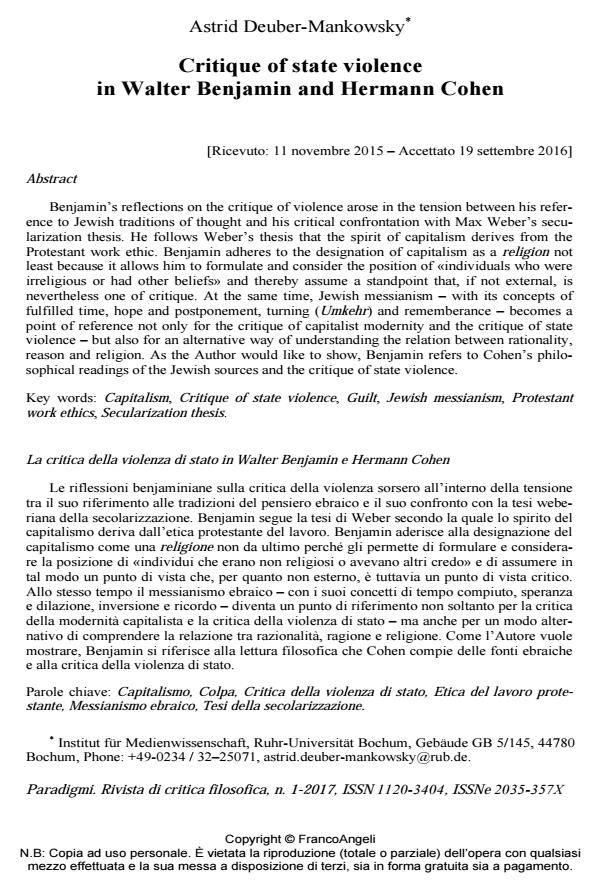Critique of state violence in Walter Benjamin and Hermann Cohen
Journal title PARADIGMI
Author/s Astrid Deuber-Mankowsky
Publishing Year 2017 Issue 2017/1
Language English Pages 15 P. 113-127 File size 208 KB
DOI 10.3280/PARA2017-001008
DOI is like a bar code for intellectual property: to have more infomation
click here
Below, you can see the article first page
If you want to buy this article in PDF format, you can do it, following the instructions to buy download credits

FrancoAngeli is member of Publishers International Linking Association, Inc (PILA), a not-for-profit association which run the CrossRef service enabling links to and from online scholarly content.
Benjamin’s reflections on the critique of violence arose in the tension between his reference to Jewish traditions of thought and his critical confrontation with Max Weber’s secularization thesis. He follows Weber’s thesis that the spirit of capitalism derives from the Protestant work ethic. Benjamin adheres to the designation of capitalism as a religion not least because it allows him to formulate and consider the position of «individuals who were irreligious or had other beliefs» and thereby assume a standpoint that, if not external, is nevertheless one of critique. At the same time, Jewish messianism - with its concepts of fulfilled time, hope and postponement, turning (Umkehr) and rememberance - becomes a point of reference not only for the critique of capitalist modernity and the critique of state violence - but also for an alternative way of understanding the relation between rationality, reason and religion. As the Author would like to show, Benjamin refers to Cohen’s philosophical readings of the Jewish sources and the critique of state violence.
Keywords: Capitalism, Critique of state violence, Guilt, Jewish messianism, Protestant work ethics,
Astrid Deuber-Mankowsky, Critique of state violence in Walter Benjamin and Hermann Cohen in "PARADIGMI" 1/2017, pp 113-127, DOI: 10.3280/PARA2017-001008